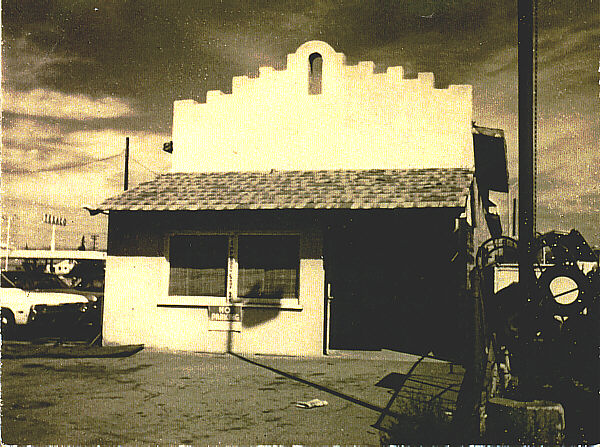 Because of current rainfall, the County Interim Health Officer, Dr. Jeffrey Gunzenhauser, is cautioning residents who are planning to visit Los Angeles County beaches to be careful of swimming, surfing, and playing in ocean waters around discharging storm drains, creeks, and rivers. Bacteria, debris, trash, and other public health hazards from city streets and mountain areas are likely to enter ocean waters though these outlets.
Because of current rainfall, the County Interim Health Officer, Dr. Jeffrey Gunzenhauser, is cautioning residents who are planning to visit Los Angeles County beaches to be careful of swimming, surfing, and playing in ocean waters around discharging storm drains, creeks, and rivers. Bacteria, debris, trash, and other public health hazards from city streets and mountain areas are likely to enter ocean waters though these outlets.
Discharging storm drains, creeks, and rivers only comprise a small portion of the beach; therefore, anybody who wants to go to the beach will still be able to enjoy their outing. Swimmers and surfers are advised to stay away from discharge sites. There is the possibility bacterium or chemicals from debris and trash could contaminate the water near and around discharge sites, and individuals who enter the water in these areas could become ill.
Areas of the beach apart from discharging storm drains, creeks, and rivers are exempted from this advisory. This advisory will be in effect until at least, Monday, May 11, at 7:00 a.m. This advisory may be extended depending on further rainfall.
Recorded information on beach conditions is available 24-hours a day on the County’s beach closure hotline: 1-800-525-5662. Information is also available online at our website: http://www.publichealth.lacounty.gov/beach/.
The Department of Public Health is committed to protecting and improving the health of the nearly 10 million residents of Los Angeles County. Through a variety of programs, community partnerships and services, Public Health oversees environmental health, disease control, and community and family health. Public Health comprises nearly 4,000 employees and has an annual budget exceeding $900 million. To learn more about Public Health and the work we do please visit http://www.publichealth.lacounty.gov, visit our YouTube channel at http://www.youtube.com/lapublichealth, find us on Facebook at http://www.facebook.com/lapublichealth, or follow us on Twitter: @LAPublicHealth.
US EPA, Product Stewardship Institute, and University of California Launch Toolkit to Reduce Marine Debris
May 8, 2015 – Today, the U.S. Environmental Protection Agency, the Product Stewardship Institute, and the University of California announced the launch of a new Marine Debris Campus Toolkit designed to help college campuses and other institutions cut their plastic waste to help reduce marine debris and coastal pollution. The toolkit, funded by an EPA grant, resulted from a successful two-year pilot project by the Product Stewardship Institute at three coastal University of California campuses: UC Santa Barbara, UC San Diego, and UC San Francisco.
“Preventing plastics and other types of trash from becoming marine debris is so important,” said Jared Blumenfeld, EPA’s Regional Administrator for the Pacific Southwest. “This cool toolkit shows us how to take action in the fight to create trash free streams, lakes and oceans.”
During the two-year pilot project, all three UC campuses dramatically reduced their plastics use. UC Santa Barbara saw a 97 percent decline in plastic bag use by campus food services through an agreement with their local Subway store to eliminate unnecessary packaging. By promoting campus hydration stations, the campus also eliminated over 60,000 single-use plastic water bottles. UC San Diego cut over 1 million plastic bags each year by working with their campus Subway store to eliminate plastic bags and straw sleeves. UC San Francisco’s Parnassus and Mission Bay campuses retrofitted over 50 water fountains with gooseneck spouts to fill reusable water bottles more easily, cutting campus purchasing of single-use plastic water bottles by 50 percent, saving $27,500 each year.
The Campus Toolkit is a detailed “how to” guide for reducing plastic waste on college campuses and other institutions, including: a Footprint Calculator to determine a campus’ plastic footprint; source reduction plan to eliminate the use of disposable plastic items; changing campus purchasing practices by switching to greener, lower waste products; and establishing campus-wide plastic waste reduction policies.
“The toolkit enabled three of our campuses to identify sources of plastic waste, research solutions, and make concrete change,” said Matt St. Clair, Director of Sustainability for the UC Office of the President. “We, in fact, saw significant reductions in disposable plastics throughout all three campuses, and hope this toolkit will inspire change across the UC system.”
“Packaging makes up a large portion of marine debris and contributes to the huge gyres of trash that exist in our oceans, harming both marine life and human health,” said Scott Cassel, Chief Executive Officer at the Product Stewardship Institute. “The adoption of this toolkit by other universities could have a major impact on reducing marine debris in coastal watersheds, which would convey immense promise in the movement to rid our waterways of excess plastic.”
Download the Campus Toolkit on EPA’s website at: www.epa.gov/region9/marine-debris/
More information about the Product Stewardship Institute and the pilot project is available at: http://www.productstewardship.us/
A Campus Toolkit fact sheet is available at: http://c.ymcdn.com/sites/productstewardship.site-ym.com/resource/resmgr/PSI_Reports/2015.04.20.Toolkit-One-Pager.pdf
Like this:
Like Loading...
Related




 Tweet This
Tweet This Facebook
Facebook Digg This
Digg This Bookmark
Bookmark Stumble
Stumble RSS
RSS





























REAL NAMES ONLY: All posters must use their real individual or business name. This applies equally to Twitter account holders who use a nickname.
0 Comments
You can be the first one to leave a comment.